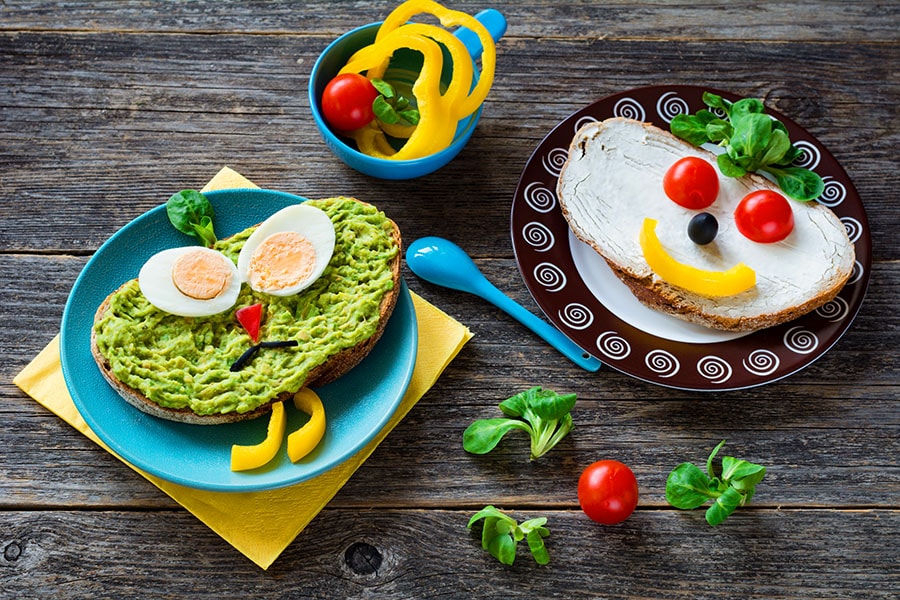
The unintended consequence of parents choosing healthy food for kids
By Fuqua School of Business| Feb 20, 2024
Professor Gavan Fitzsimons found that even health-driven parents often choose unhealthy meals for themselves as a backup for their children
 [CAPTION]One study also found that parents are less likely to pick an unhealthy meal for themselves when their kids actually liked the healthy meal that was picked for them.
Image: Shutterstock[/CAPTION]
[CAPTION]One study also found that parents are less likely to pick an unhealthy meal for themselves when their kids actually liked the healthy meal that was picked for them.
Image: Shutterstock[/CAPTION]
Choosing a healthy meal for their kids may induce parents to pick a less healthy option for themselves, especially if the meals can be shared.
Research from Professor Gavan Fitzsimons of Duke University’s Fuqua School of Business shows that caregivers’ pressure to provide for their dependents’ immediate needs may lead them to choose an alternative option for themselves. For example, an unhealthy meal may serve as a backup plan if the child doesn’t eat their own healthy meal.
_RSS_In a new paper published in the Journal of Marketing Research, Fitzsimons and Fuqua Ph.D. graduates Kelley Gullo Wight of Indiana University’s Kelley School of Business, Peggy J. Liu of the University of Pittsburgh, and Lingrui Zhou of the University of Hong Kong, investigated how consumers make food choices when they are providing for children.
“When we think about consumers’ choice, we often think about choices for themselves,” Fitzsimons said. “But there is a whole other realm of people who are choosing for their children and for loved ones.”
Parents are constantly thinking about feeding their kids, Fitzsimons said, and in recent years, they are also more aware of nutrition concerns.
When parents share a meal with their children, Fitzsimons said, one of the tactics they deploy to balance health and feeding needs is to pick a less healthy meal for themselves.
“It's like a firewall to make sure that kids are going to be okay,” Fitzsimons said. “At least you've got some french fries on your plate that you can give to them to get some calories into them.”
The researchers suspected that the possibility of sharing food with their children was the key behind this effect.
In one field study at a nursery school, the researchers recruited parents for a purported “family dinner study” and offered them to-go meals from a restaurant to choose for their kids and for themselves. The kids’ menu only listed healthy choices, while the parents’ menu listed a mix of healthy and less healthy ones. The researchers prompted half of the parents with the condition that the meal was only for them, whereas the second half got to share the meal with their kids. The results showed that 50% of the parents chose an unhealthy meal for themselves when the food was shareable, compared with only 17.6% who chose an unhealthy option when the meal was not shareable.
The researchers further tested the motivations behind parents’ choices with four studies involving more than 3,700 participants. These studies confirmed that parents’ primary motivator is the concern that their children won’t actually eat a healthy meal that the parent has selected for them. They also confirmed that despite parents’ focus on the need to set an example for their kids’ future, they mostly give in to the present pressure of feeding them—and that when sharing is not considered, parents would instead choose a healthier meal for themselves.
One study also found that parents are less likely to pick an unhealthy meal for themselves when their kids actually liked the healthy meal that was picked for them.
“This is one the biggest takeaways,” Fitzsimons said. “If the healthy meal is also appealing to children, you don’t have to worry about choosing something unhealthy to cover them.”
Also read: How the Sampath sisters' Yogabar brought healthy snacking to India
Caregivers: A huge market
“The percentage of Americans who are caregivers in one form or another is above 50% of the population,” Fitzsimons said.He believes marketers have a lot of room for practical interventions to encourage healthy habits when providing appealing choices.
“For example, instead of offering pizza that's made with unhealthy ingredients, you could have a cauliflower crust, some healthy cheese, and some vegetables on top,” he said.
He also said that targeted messaging on packages or menus may be effective at nudging parents to the right choice.
“A message that would be well received by parents might sound like, ‘These meals are really healthy for your kids. And they'll eat every bite,’” he said.
Insights for policymakers and marketers
In March 2023, the White House launched the challenge, “End Hunger and Build Healthy Communities,” which is just the latest of several initiatives to promote healthier habits for children, the researchers write.Cities, organizations, and companies have committed to taking actions that align with the challenge. However, Fitzsimons said it might be hard for public policy to regulate how we consume food―as an example, he recalled the “Ketchup as a vegetable” debacle of the ‘80s.
“Food companies and restaurants, on the other hand, see the huge potential upside of this market and can roll out campaigns quickly and universally,” he said.
Companies are also encouraging consumers to share their meals, the researchers say, the very practice that prompts parents to choose unhealthy for themselves.
“But you don’t want to discourage sharing,” Fitzsimons said, “because in a world where kids are constantly on technology, meals are one of the last moments where the family can come together. We just don’t want parents to share unhealthy food.”